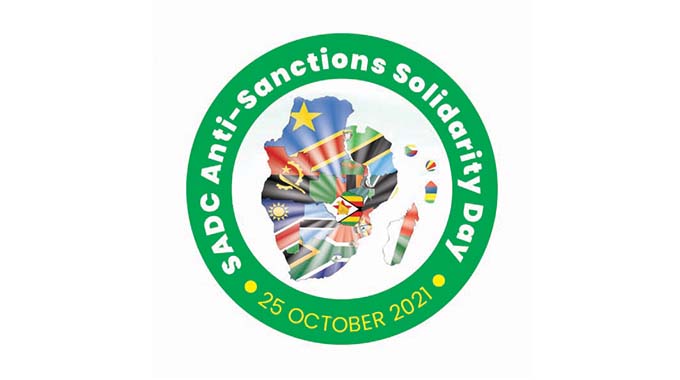Sanctions cripple NRZ recapitalisation efforts

Oliver Kazunga, Senior Business Reporter
THE imposition of illegal economic sanctions on the country by the West and its allies continues to weigh down on the National Railways of Zimbabwe (NRZ) recapitalisation, whose weak operations are adversely affecting the larger economy.
NRZ requires about US$1,9 billion in the long-term to rejuvenate its operations but is unable to do so due to a number of challenges closely linked to a constrained economic space.
Following the successful Land Reform programme Zimbabwe embarked on in 2000, the country was slapped with the illegal economic embargo by Britain and her allies.
The Land Reform programme was meant to redress the imbalances that existed prior, which favoured the white minority population.
Taking into account that NRZ is a strategic bulk transporter, highly dependent on business from economic activity in the country, the long-standing sanctions have also affected the rail entity’s operational capacity and efficiency.
In an interview yesterday, Transport and Infrastructural Development Deputy Minister, Mike Madiro, said the economic malaise being experienced in Zimbabwe was largely a result of the Western-imposed illegal sanctions.
He said companies such as NRZ, whose operations are highly dependent on economic activity while also sourcing spares for equipment mainly from Europe, have not been spared from the adverse effects of the illegal sanctions.
“The illegal sanctions have had a very negative impact on the operations and sustenance of NRZ as an organisation. Following the imposition of the embargo by the West, it meant that the organisation could not import critical spares.
“Also, the NRZ recapitalisation project has not been possible to take off because of these sanctions,” said Deputy Minister Madiro.
In the short-term, NRZ requires US$400 million for recapitalisation and raising such an amount under an environment characterised by sanctions has also proved to be a mammoth task for the railways firm.
NRZ is still scouting for an investor for its recapitalisation project after Cabinet in 2019 cancelled the US$400 million deal the parastatal had signed with the Diaspora Infrastructure Development Group (DIDG)-Transnet.
Apart from failing to meet agreed timelines, the Government re-tendered the deal after DIDG cut ties with South Africa’s publicly-owned rail operator, Transnet, which was part of the consortium agreed in the initial tender award, raising legal complications.
DIDG has pleaded with the Government to consider resuscitating its US$400 million recapitalisation project. The NRZ rehabilitation programme entails renewal of plant and equipment, rolling stock, track signaling and telecommunications infrastructure and supporting information technology systems.
Deputy Minister Madiro said vandalism of NRZ infrastructure was also a teething challenge that had worsened the parastatal’s plight.
“Vandalism of rail infrastructure has also affected downstream industries as the movement of freight by NRZ cannot not be effectively executed. However, given the opening up of the economy premised on the President’s vision of an upper middle-income economy by 2030, we are hopeful that the impact of sanctions will come to pass,” he said.
“It is through his ingenuity that we are re-engaging with our erstwhile friends to improve relations and this will have a positive stimulus in that the impacts of the sanctions will become limited, allowing the country to trade with the rest of the world. Going forward, the illegal sanctions as a result of the re-engagement initiative will be removed eventually.”
In a separate interview, NRZ acting public relations manager Mr Martin Banda said it has largely been very difficult for his organisation to operate under the sanctions’ environment.
“The sanctions have affected us in the sense that the legacy debts legacy debts have been incurred by the organisation. When you have those (legacy debts), then you don’t have any investors who are willing to come and invest their monies where you are owing people large sums of money,” he said.
“These (legacy) debts have been emanating from the fact that you are not able to move the business, which is available and the failure to move that business is being caused by the non-availability of spares or the non-availability of the necessary infrastructure, which is required for you to move.”

Despite the existing challenges as a result of the illegal sanctions, Mr Banda said NRZ was an industry on its own hence the organisation has adopted initiatives such as Public Private Partnerships (PPPs) as a survival strategy.
“We have adopted other avenues like the PPPS with other organisations who might be able to have offshore funds and be able to import certain spares. For example, in terms of tankers, we’ve been involved with a number of companies who have been able to assist us with funding such that when they have funded the repair of these tankers, they are given the first priority in terms of the movement of their commodities by NRZ,” he said.
He said NRZ has also been innovative as a strategy to remain resilient under the harsh economic climate paused by the illegal embargo. In June this year, NRZ announced that it had scored a major innovation breakthrough after its engineers successfully managed to convert two Diesel Electric 6 (D6s) locomotive models to mainline locomotives.
The development was expected to go a long way in tackling capacity challenges on traction power by NRZ. Had it not been of the adverse effects of the illegal sanctions, Mr Banda said NRZ could be far in terms of operational efficiency and capacity.
“Look at the machinery, which is there at InterRail-Tech (NRZ mechanical unit), it’s not found anywhere else in this part of the continent, may be in South Africa you might probably get some of those,” said Mr Banda.
“For example, the machinery that is being used at our workshop for machining our wheels for the rolling stock, you cannot probably get it in any other Sadc country outside South Africa.”
At its peak in the 1990s, the parastatal used to move 18 million tonnes of cargo annually compared to less than three million tonnes at present. – @KazungaOliver











Comments